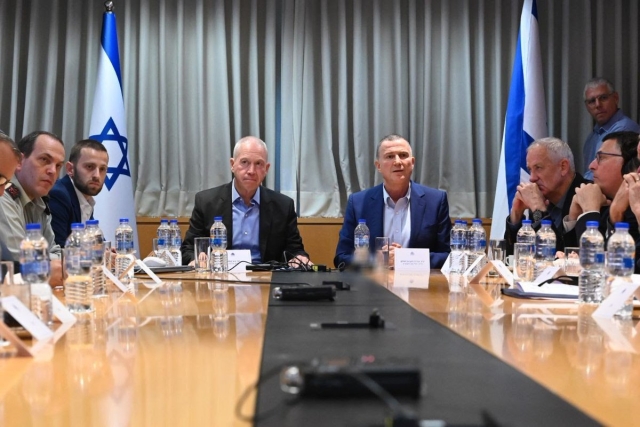Last Wednesday marked a significant meeting within the chambers of the Israeli Foreign Affairs and Security Committee. The agenda? A covert assessment of the Israel Defense Forces' (IDF) current readiness and competence. Such a pivotal meeting not only showcases the nation's proactive approach towards its defense forces but also brings to light various contentious topics surrounding it.
Yuli Edelstein, the chairman of the committee, offered his remarks as the meeting concluded. Reflecting on the prevalent criticism directed at senior military officials, Edelstein stated, "While I don't endorse the attacks targeting senior IDF personnel, I firmly believe that responsibility is a two-way street. Both critics and the officials themselves must act with accountability." Parallel to this, Member of Knesset (MK) Elkin voiced a significant demand: the precise data concerning refusals by senior IDF officers. However, much to his disappointment, this information was exclusively shared with committee leaders, sidelining others in the process.
Diving deeper into the crux of the meeting, senior IDF representatives took the floor to address the cloud of doubts hovering around the force's competence. They resolutely affirmed the IDF's capability and preparedness in fulfilling its duties, debunking any notions suggesting otherwise. Yet, in an environment that thrives on transparency, these officials did not shy away from admitting certain localized challenges that the IDF faces. They warned of potential escalation in these areas if not addressed timely but assured that proactive measures were underway. Emphasizing their commitment to discipline, they highlighted the legal actions taken against those soldiers and officers who brazenly defied reserve orders.
Tens of Thousands of Israelis Protest Judicial Overhaul for 33rd Week in a Row Amid Rising Gender Segregation and IDF Crisis
— Andy Cooper (@andycooper52) August 20, 2023
https://t.co/IrYnLswqNb
A significant portion of the discussion also gravitated towards the integration of military roles with legal protests. It was elucidated that protest leaders, who seamlessly merged their military obligations with their rights to dissent, are on a trajectory towards an official discharge. Their association with the IDF is nearing its conclusion. On a more heartening note, the committee was assured that volunteers who, for reasons of their own, veered off track but wish to reintegrate with their duties are welcome, provided they meet the necessary qualifications.
The attending MKs, after absorbing the multifaceted dialogue, departed with a mixed bag of emotions. A palpable sentiment was that the senior army officials might be setting a defensive narrative to shield themselves from potential future lapses in the IDF's operations. They emphasized that certain competence-related challenges have been the IDF's companions for years, and these aren't necessarily linked to the recent spate of refusals.
The status of a second rear admiral, who too skipped out on duty in protest of the controversial legislation, is also being examined.https://t.co/dNswcWL8pu#Israel #IDF #IsraeliNavy #judicialreform
— Israel Hayom English (@IsraelHayomEng) August 18, 2023
This extensive discussion, a collaboration of several subcommittees, holistically tackled the IDF's operational spectrum, from routine tasks to emergency responses. A spotlight was also shone on how public discourse impacts the army's readiness. Additionally, the debate broached the rising trend of reserve non-compliance, proposing strategies to curtail this technically unlawful mode of protest.


